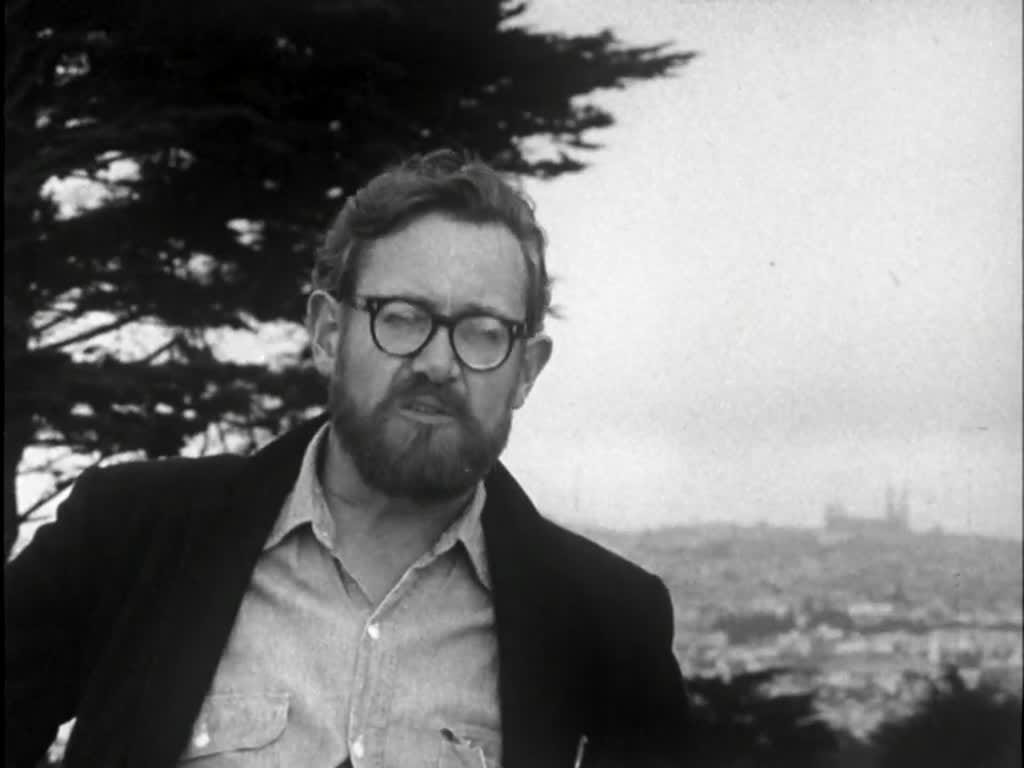Philip Whalen
Philip Whalen (1923-2002) was an American poet, a central figure in the San Francisco Renaissance, and closely associated with the Beat Generation.
His work is distinguished by its humor, colloquial style, and a deep interest in both the mundane and the spiritual, reflecting his Zen Buddhist practice. Whalen's poetry often explores themes of perception, consciousness, and the interplay between the external world and internal experience, making him a unique voice in American literature.
Early Life and Education
Philip Whalen was born on October 20, 1923, in Portland, Oregon. He served in the U.S. Army Air Forces during World War II and later attended Reed College on the G.I. Bill. At Reed, Whalen met Gary Snyder and Lew Welch, forming friendships that would significantly influence his literary career. His time at Reed College was crucial for his development as a writer and thinker, immersing himself in literature and beginning to craft his distinctive poetic voice.
Literary Career
Whalen's literary career took off in the late 1950s, during a period of burgeoning literary activity in San Francisco. He participated in the famous Six Gallery reading on October 7, 1955, alongside Allen Ginsberg, Michael McClure, Gary Snyder, and others, marking a seminal moment in the Beat movement. Though less widely known than some of his Beat contemporaries, Whalen's work was highly regarded for its idiosyncratic approach and philosophical depth.
His poetry is characterized by an attentive and often humorous observation of the everyday, combined with a Zen Buddhist sensibility. Whalen saw writing as a form of meditation and a way to explore the nature of mind and reality. This perspective is evident throughout his work, including in collections such as "On Bear's Head" (1969) and "Decade" (1969), which compile his reflections on life, nature, and the act of writing itself.
Zen Buddhism and Later Years
Whalen's interest in Zen Buddhism deepened over the years, eventually leading him to become an ordained Zen monk in 1973. He spent much of his later life in Zen practice, living in San Francisco and, later, at the Hartford Street Zen Center. His poetry continued to reflect his spiritual practice, marked by a focus on the present moment and the interconnectedness of all things.
Legacy
Philip Whalen passed away on June 26, 2002. His legacy is that of a poet who pursued an inner exploration of consciousness and the human experience, integrating his literary craft with his spiritual practice. Whalen's work remains a testament to the richness of observing the ordinary world with extraordinary attention and insight. Unlike some of his contemporaries who sought to break from societal norms through overt rebellion, Whalen's approach was more introspective, seeking transformation through mindfulness and the power of observation.
His contributions to American literature and the Beat movement, while perhaps less celebrated than those of Ginsberg or Kerouac, are significant for their depth and originality. Whalen's poetry offers a unique window into the confluence of mid-20th-century American culture, Zen Buddhism, and the poetic imagination, making him a pivotal figure in the postwar American literary landscape.

